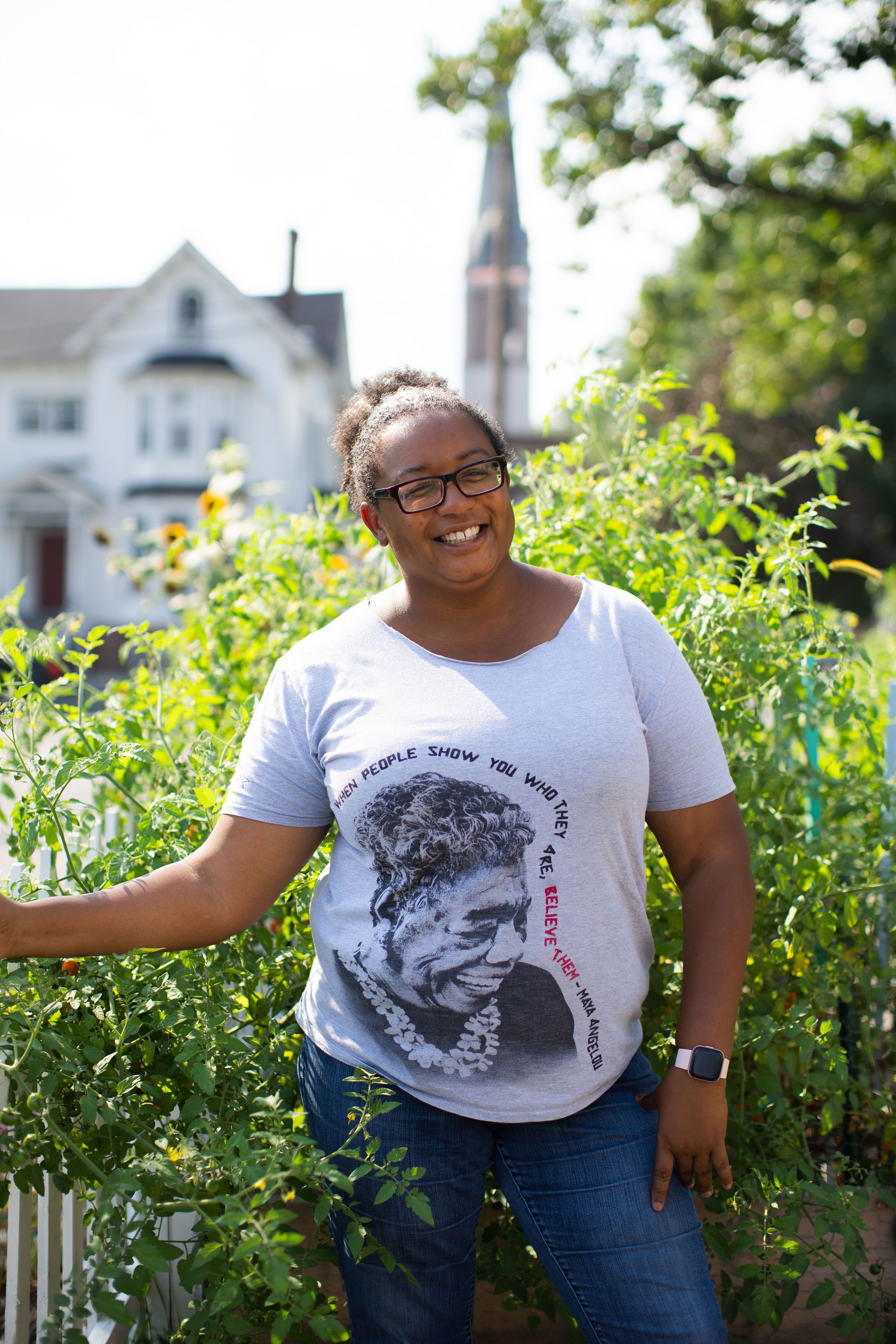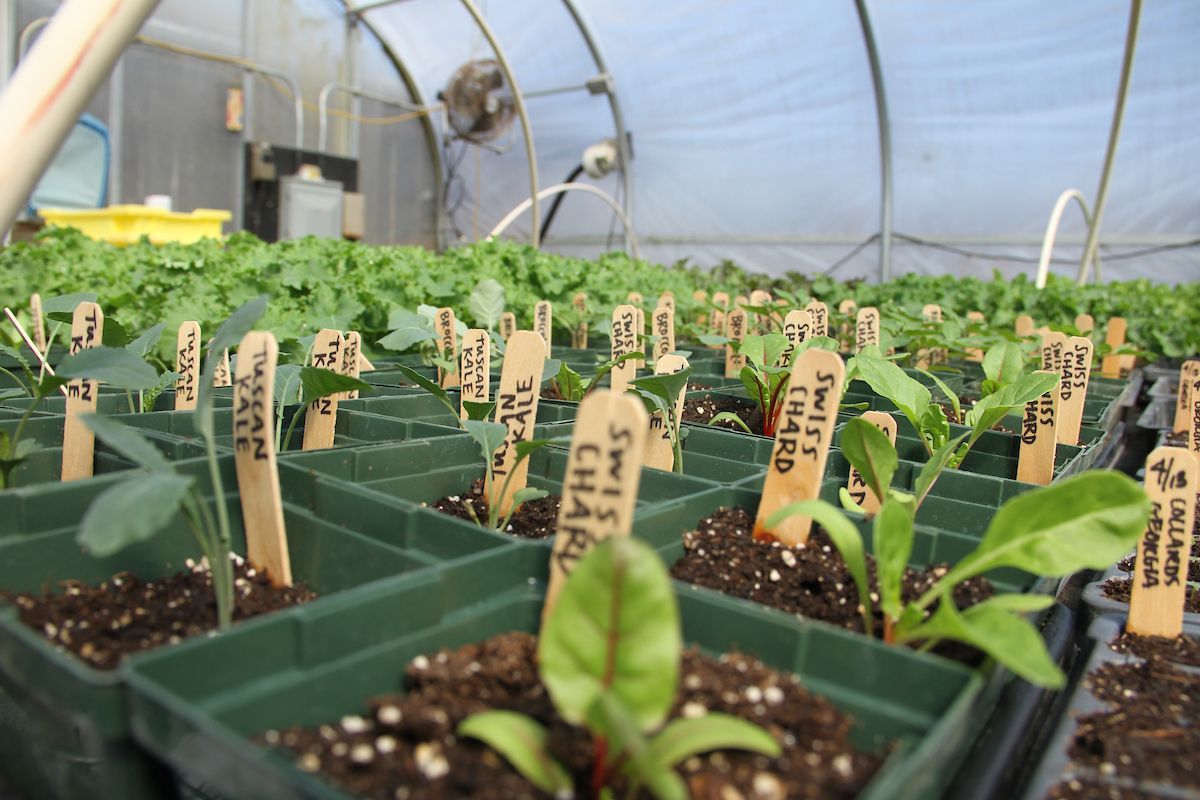
Glynwood’s Food Sovereignty Fund (FSF) is a transformational community-based food justice and health equity program designed to address various inequities in our food system. Through it, we help farmers connect with hunger relief projects to provide delicious, nutritious, and culturally appropriate food grown by regional farmers to these organizations and their clients. It is a stand-out example of our commitment to supporting community control of the food system–a defining principle of food sovereignty.
Here’s how it works: The FSF pays farmers in advance for food. Farms are then matched to community-based hunger relief projects, who in turn distribute the food to the clients they serve. The FSF contracts exclusively with farms that gross less than $500,000 in annual sales, practice ecologically sound land stewardship and are owned/managed by people who identify as LGBTQIA2S+, BIPOC, and/or women. To help guide this initiative, we established an Accountability Council made up of people from historically marginalized communities that have experienced centuries of divestment; this program brings us closer to community control of the food system—a defining principle of food sovereignty.
Expanding Our Reach
In 2022, the FSF focused on sustainable, transparent growth. This included expanding the community food access projects involved through a partnership with Episcopal Charities of New York. Also, in 2022, the Accountability Council added five new farms to the fund, for a total of 22 farms, allowing the FSF to collectively provide over $290,000 worth of food to partners in their communities—an estimated 90,000 pounds. Foods supplied ranged from staples (including yogurt, beef, chicken, tomatoes, onions, and carrots) to culturally meaningful herbs like papalo for Latine folks and vegetables like chois for Asian American elders. The work covered a broad region from farms as far north as Washington County, where Black Yard Farm Collective is located, to community programs in lower Manhattan, to farms and community programs in Ulster, Columbia, Orange, Dutchess, and Westchester counties and the New York City boroughs of Brooklyn and the Bronx.
We also continued and deepened our commitment to our multilingual community by working with the Hudson Valley Language Justice Collective (HVLJC) to communicate in Spanish and English in all formats (email, text, and in person). What’s more, we purchased simultaneous translation equipment for in-person meetings and have used it successfully across Glynwood programs. This system will be available to the HVLJC and others to help expand language justice across the region.
In recent months, we hosted two in-person gatherings that allowed farmers and emergency food workers to connect, give us feedback on the program, and help us plan for the future. In these emotional and fulfilling sessions, we learned about the specific challenges arising around the influx of refugees and immigrants and how this program is helping to provide a sense of belonging and home.
One major limiting factor for organizations looking to distribute farm fresh food is the need for adequate cold storage, essential for transporting the nutritionally dense food into the communities that need it most. In 2022, to meet this challenge, we funded three custom-built cold storage trailers to be delivered to three local frontline organizations: North East Community Center, Dutchess Outreach, and Our Core. Each trailer can hold approximately 650 cubic feet of products. Other features include strip curtains to help maintain the internal temperature while in use, smart locks so access can be granted or restricted remotely, and high-quality produce scales.
Looking forward: 2023 and Beyond
In 2023, the FSF and its farm and food access partners plan to distribute approximately $310,000 worth of local food (about 100,000 pounds). The FSF will also increase contracts to returning farms, provide orientations and tours with contracted farms, and continue to support language justice. We will also compile a program governance plan to codify accountability council nominations/selections, the farm participation application process, and the contract award selection process.
We are enthusiastic about the addition of the three cold storage trailers, a durable asset promising significant benefits to all partners in the 2023 season and beyond—including fresher produce for clients, easier distribution logistics, and smoother partner collaborations. The FSF will also expand our language justice efforts to support Mandarin-speaking clients.
The number one request from FSF participants at our winter meeting was to find ways to bring community programs and farms closer together, and so we are planning four additional in-person meetings with this goal in mind.
In 2023, Glynwood will donate approximately 30% of the food we produce on our farm—$45,000 (15,000 pounds) of organically grown produce, and $12,000 (1,200 pounds) of humanely raised and grazed meat products—through partnerships with the following food access partners for community distribution: Fred’s Pantry Food Distribution Center, Dutchess Outreach Community Food Pantry, Philipstown Food Pantry, and Second Chance Foods. Our donations to our community partners are critical to their ability to serve the needs of their clients, particularly as the cost of eggs has increased tremendously over the past few months and the COVID-SNAP (Supplemental Nutrition Assistance Program) ends.
We owe a debt of thanks to you, our supporters, for the opportunity to expand and increase support for our work to stimulate a just, healthy, and equitable food system here in New York and to assist other regions nationally to center regional food production in their communities.

